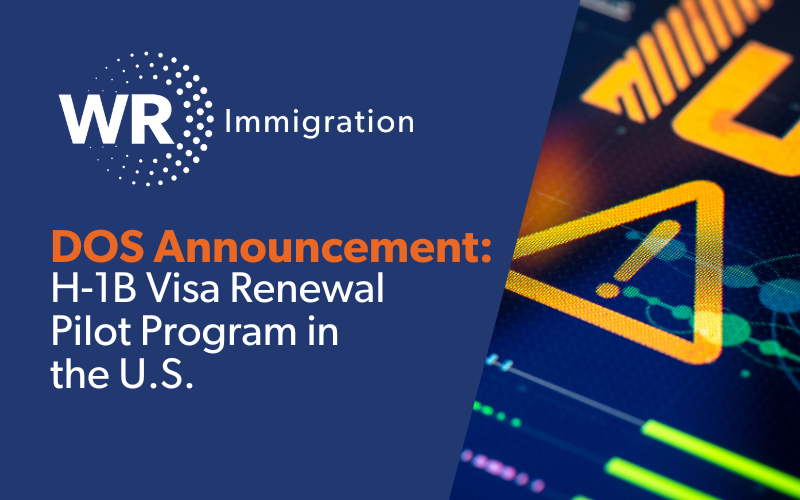The Department of State is launching a pilot program for domestic renewal of H-1B visas, offering a significant development for qualified applicants. The program, active from January 29 to April 1, 2024, allows eligible H-1B visa holders to renew their visas within the United States, a departure from the standard process requiring renewal from outside the country.
Eligibility and Application Details:
- Scope: Limited to H-1B visa renewals.
- Requirements: Applicants must meet specific criteria, including prior visa issuance by Mission Canada (from January 1, 2020, to April 1, 2023) or Mission India (from February 1, 2021, to September 30, 2021), among others.
- Application Process: Applicants can apply online at travel.state.gov.
Aim of the Pilot: The pilot aims to test the feasibility of resuming domestic visa renewals and to assess its effectiveness in reducing global visa wait times. This move is aligned with the Administration’s commitment to improving federal service delivery and supporting U.S. industry partners.
Application Procedure:
- Period: Online applications accepted from January 29, 2024.
- Limits: Weekly limits on applications based on the region of prior visa issuance.
- Processing Time: Expected to be 6-8 weeks from the receipt of required documents.
- Fees: Non-refundable and non-transferrable $205 MRV fee.
Requirements for Participation:
- Includes criteria such as in-person interview waiver eligibility and maintaining H-1B status.
Documentation Needed:
- A completed DS-160 form, a recent photograph, passport, Form I-797, and I-94.
Important Notes:
- Visa issuance through this program is not guaranteed.
- Ineligible or incomplete applications will face refusal under INA section 221(g).
- This pilot is a temporary arrangement, and participation is voluntary.


